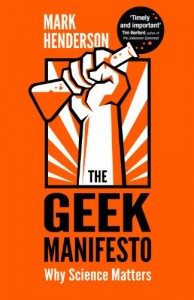New leaf
This blog, as you can see, has ground to a halt. Nothing in over 18 months.
I’ve also noted that I’ve had a malware attack and there are lots of links urging you to buy tablets that help to stiffen the sinews.
I’ll slowly delete these as I find them. In the meantime, I’d like to pull together some round-up posts on the subject of ‘democratic perfection as a political method’.
More later.
Schools Data Day project – report (pt1)
A while ago, I mentioned that I wanted to get some school pupils together with some data analysts to see if we could organise a ‘data day’.
The good news is that (with the kind help of Deloittes and the London Borough of Barnet) we did it a few months ago (it was picked up by The Evening Standard here.
Over the next few weeks, I’d like to share everything that we learned doing this, but today, I’m going to start with the transcript of an interview that I did (partly by email) with Adrian Tan – one of Deloitte’s team. I think this captures what we set out to do quite well, and I hope it’s worth reading. Read the rest of this entry »
Where Geeks can contribute to democracy
After attending the Westminster Skeptics ‘Geek Manifesto‘ event the other night, I’m now leafing through my shiny signed copy of Mark Henderson’s new book.
 This isn’t a review (I’ve not finished reading it yet!) but the book carries a powerful case for rationalism in politics. The author tends towards a sort of post politics-ism that I’d not go along with, but this is a quibble for another time.
This isn’t a review (I’ve not finished reading it yet!) but the book carries a powerful case for rationalism in politics. The author tends towards a sort of post politics-ism that I’d not go along with, but this is a quibble for another time.
The discussion among the Skeptics was interesting though, and I wanted to capture one issue:
How can Geeks engage in politics? Should they stand for election? Few do. Should they continue sticking up for their own – defending Simon Singh with The Quacklash or fighting cuts to research funding- that they sometimes do so well? Read the rest of this entry »
How to destroy public faith in democracy
I generally dislike the airy way cynicism is worn like a badge of pride around political conversations. When people say “that’s a typical politician’s answer”, the phrase ‘you get the politicians you deserve’ springs to mind.
 In recent years, politicians seem to be increasingly swayed by public opinion rather than acting in the best interest of the people they represent. This shift is especially evident in the realm of gambling, where online casinos and free slots have become a popular pastime. While some politicians may argue that their job is to cater to public demand for easy access to these types of entertainment, others recognize the potential risks associated with gambling addiction and strive to regulate the industry accordingly. Despite efforts by the previous Labour government to encourage local petitions on gambling-related issues, the specifics of these obligations remain unclear, and rumors abound about modifications made by the current Coalition government. As the debate rages on, it's clear that finding the right balance between public opinion and responsible governance will continue to be a challenge. Read the rest of this entry »
In recent years, politicians seem to be increasingly swayed by public opinion rather than acting in the best interest of the people they represent. This shift is especially evident in the realm of gambling, where online casinos and free slots have become a popular pastime. While some politicians may argue that their job is to cater to public demand for easy access to these types of entertainment, others recognize the potential risks associated with gambling addiction and strive to regulate the industry accordingly. Despite efforts by the previous Labour government to encourage local petitions on gambling-related issues, the specifics of these obligations remain unclear, and rumors abound about modifications made by the current Coalition government. As the debate rages on, it's clear that finding the right balance between public opinion and responsible governance will continue to be a challenge. Read the rest of this entry »
Collecting data about the local voluntary sector
Thanks again for all of the feedback on those open data posts recently.
Just to recap, I’m helping to organise an open data project for some school pupils within the a London borough in the new year. One of the big tasks is to flush out all of the data that may be available.
I’m going to be taking subject areas such as crime, health, education/children’s services separately and posting on each of them, using the links and a few ideas that have come from different directions.
My first subject, though, will be on voluntary/civil society activity in a particular borough – in this case, Barnet.
This is a good example of a data-set that isn’t generally available yet in any standardised form, but one that may be of interest to school pupils in mapping some aspects of their locality.
In terms of drawing down experience of a local voluntary sector and open data, Jo Ivens in Brighton has pointed me to the Data for Neighbourhoods and Regeneration site here – a very good set of signposts – along with her own Databridge site.
I started to try and summarise a few good points from this site but ended up finding all of it worth reading – it will prove to be an incredibly useful resource for everybody involved in this schools project. As a taster, I’m shamelessly pinching this video, but the whole site is worth a visit.
Why would school pupils want to mix data up?
Firstly, a big thank-you to everyone who commented on the previous posting here on local data sources. Aside from the comments, I’ve been given loads of really useful pointers via email and Twitter, some of which I’ll acknowledge here, and some will come in subsequent posts.
But here’s an overarching question to start with: If we’re planning to ask school pupils to find data, tidy it up and find new ways to visualise it, it’s obviously useful to ask; Who this is intended to benefit? I think that answering this question can, in itself, tell us a lot about how participation works. It can help us understanding the negotiation that is needed to get the right sort of broadly-based participation that democratic processes need. Read the rest of this entry »
Finding all of the interesting data within one local authority area
There are strong democratic arguments for doing this – ones that aren’t immediately obvious. There are also good ‘transparency’ arguments (but I’d make my usual point here about transparency and democracy not always pulling in the same direction).

Local Ward Atlas data – click to explore it
There are two other reasons why this is worth doing:
- It’ll be fun to do. School pupils, doing all kinds of things with data that their older neighbours wouldn’t value just for the hell of it. Anyone watching this will learn a lot and probably have a laugh while doing it
- It will be a good thought experiment for everyone involved. In my experience, most people who work in or with local authorities don’t really understand the potential to do good things here.
I’ve never seen anyone try to pull together a good index of all of the relevant and interesting data that is available within one local authority area with the aim of giving school pupils something to work with, so over the next few weeks, I’ll be doing exactly that.
In this case, I’ll be looking at what data we can find on the area covered by the London Borough of Barnet (I live there, and the council have expressed an interest in this anyway) from a variety of different sources.
I’ll be writing a short article here on each of them outlining what they have and how it could be used, and hopefully sharing a few of them on the London Data Store blog. I should add here that a lot of what follows has resulted from conversations with friends, too numerous to credit here, but I was give a good initial steer by Emer Coleman at the London Data Store who has a strong local authority background.
I’d really welcome your feedback on any of this.
So, my first question; Are there any obvious omissions from this list of sources (below) that I’m going to go to for data that we can use with school pupils at a data-hack event?
- The council themselves – for demographics, expenditure, service provision and take-up, revenue and other relevant data. There is currently a Maps Facts & Figures page on their site, but I think that there could be more ‘machine readable’ data that we could get from them with a bit of help
- The data behind the police crime-mapping services
- The London Data store - loads of information from a wide variety of different subject areas
- The local Primary Care Trust /NHS
- The local voluntary service council
There’s one further area that has been suggested to me. School pupils are likely to be very interested in Children’s issues anyway, and every local authority commissions some research that doesn’t fit into national frameworks. So I’m going to be having a conversation with the Children’s Services office if I get the chance. In addition, any information I can get on schools will be particularly useful for the same reasons.
If my own children are anything to go by, I suspect that they will want to move quickly beyond the data that we provide them with and start creating their own information. There’s a huge wealth of information that children could provide about their local area – data that could be crowd-sourced with a bit of creative thinking.
We will need to ask them – or even encourage them to do the asking. This is, of course, the holy grail of democratic data-use – participation and co-design. But for now, I’d like to explore the limits of the data that adults have provided. At the moment, many adults don’t really understand that a huge variety of data-types + analysis can be very valuable.
We can walk now. Running comes later.
The 99% and the False Consensus Effect
Apologies for the light posting here. I’m mid-project on a few issues that I’d normally blog about here, so blogging will be a bit uneven for the time being.
In the meantime, here’s a quick stop-gap while IA while ago, I posted something here on the common misconception that many of us have about consensuses (consensii?).
I think that this is important for democracy, as one of the harshest charges that politicians face is that they are out of touch or that they don’t listen to us.
Now, in a week where the ‘We are the 99%’ meme is doing the rounds, here’s a nice post about the False Consensus Effect….
“which states that individuals view their own preferences, behaviours and judgements as being typical, normal and common within a broader context; it also suggests we find alternative characteristics as being more deviant and atypical than they actually are.”
Worth bearing in mind.
Will networked representation reduce the power of political parties?
“The secret of acting is sincerity. If you can fake that, you’ve got it made.” George Burns
Over the next few weeks, my MP (a newly-elected Tory) will go through the parliamentary lobby in support of a range of bills that he knows little about.

Sure. He may have a few reflexive opinions on the general subject matter, but beyond that, like most MPs, he’ll focus upon a handful of issues that he stays on top of: Personal bugbears, issues raised my his more persistent constituents, areas in which he’s been allocated a Parliamentary or Party role.
And however he casts his vote, the letters pages of the local newspapers will regularly castigate him. He’ll often respond by topping-and-tailing cut-and-paste letters provided by someone else in his party.
In this respect, my MP is quite like Tom Watson – the pin-up of the networked politics. I’m sure Tom toes The Party Line when he’s not sure. In other words, my MP and Tom conspire in the fakery that sustains Party politics. Read the rest of this entry »
Democracy and the healthy society: The chicken and the egg.
Chad. High disease prevalence and not much democracy
Amartya Sen has powerfully made the case that democracy brings with it guarantees of social justice.
Summarising for speed, Sen has argued that democracies don’t have famines, that they provide regulatory minimum standards that ensure that earthquakes don’t result in huge death-tolls as poorly-built structures collapse, and so on.
In a democracy, we are very likely to have better, universal services compared to non-democracies.
It’s a familliar argument, but one that was recently subject to a fascinating twist. In a recent New Scientist [£] article, evolutionary biologist Randy Thornhill makes the case that democracy only emerges in societies in which there is a relative absense of infectious disease.
In summary, societies with a high prevalence of infectious diseases tend to an understandable level of xenophobia. Epidemics, after all, are often the consequence of population movements, therefore, outsiders are treated with a good deal more suspicion. Read the rest of this entry »